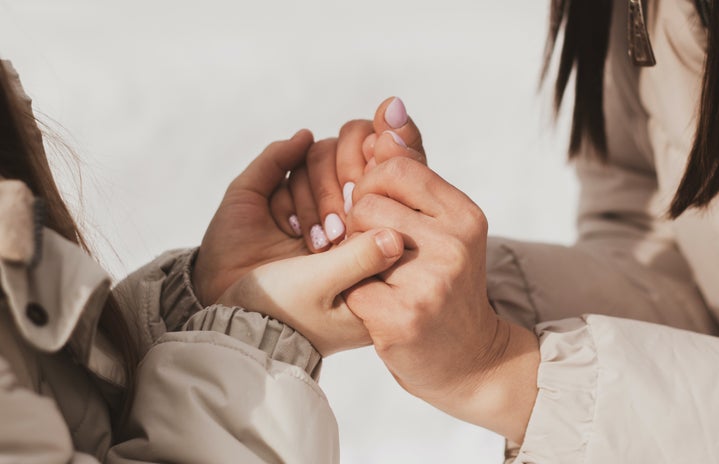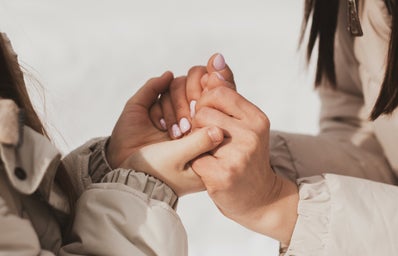Most of the time, in line with mainstream media’s encouraging portrayals of the strong, carefree, and independent woman, I feel completely okay being single. I buy lunch, start watching a Netflix show, or explore new places in town, without having to answer to anyone; I pay my due diligence at practising self-love, working through trauma and mindfully choosing the words I use with myself. My gym playlist boasts countless sassy, empowering songs chanting, “You’re better off, I’m glad that he’s gone,” “I don’t need no one, I’m independent, on my own,” “Now that you’re gone and out of my way, feeling this bad never felt so great….”
Other times, though, my faith in the much celebrated singlehood gets a little shaky. Perhaps a bad first date, or a video of a loving couple, or even just some particularly nostalgic song, can suddenly amplify the feeling of being alone, and (gasp) being lonely. For a brief moment, I would wonder what I could have done wrong to be so single, but a worse feeling immediately ensues — the embarrassment of catching myself wondering.
But why should I be embarrassed to admit that being single isn’t so great, and why should I be ashamed of trying to figure out a solution? I suppose the reasons boil down to the black-and-white view we have about singlehood, the stigma we perceive around loneliness, and our tendency to see relationships as the end of autonomy and self-development.
Happy single or sad single: choose only one
It seems that there are two rather contradictory attitudes about singlehood. On the one hand, singlehood implies a “lack”, and should be necessarily avoided; as Jane Austen puts it, “…a single man in possession of a good fortune, must be in want of a wife.” While today’s society no longer sees marriage as so obligatory, it still treats singlehood as somewhat of a transitional phase that should end in a relationship — preferably as soon as possible. Hit songs revolve around pining for, exalting in, or mourning the loss of a romantic interest; it’s almost impossible to find a movie without a romantic plot or subplot, and likely ending in the tormented lovers finally embracing each other; and even our daily conversations tend to inevitably turn to the subject of romantic relationships (or the lack thereof).
On the other hand, being single is also portrayed as a cathartic escape from the shackles of an unhappy relationship. In Hollywood terms, this is often seen in a drastic post-heartbreak glow-up, a trip to some sunny island with your girlfriends, or your career suddenly rising to huge success (because surely, getting out of a toxic relationship means lots more energy you can put into work).
But singlehood doesn’t have to be either a temporary phase of impatiently waiting for love, or a perfect self-transcendent state of happiness where romance is completely out of the question; what about the more mundane, nuanced versions of being single? You can grieve a past relationship while still feeling satisfied with your current life; you can be healed from your trauma but not looking for new people.
There is no need to scramble to get out of being single, but there’s also no need to throw a party to celebrate singlehood every day. A lot of the time, we can just let ourselves be.
It’s okay to (admit that you) feel lonely
Although the “avoid or celebrate” attitudes towards singlehood seem to contradict each other, I think they share pretty much the same basis: The dread of admitting that being single is lonely. We tend to think that if we say that we’re feeling isolated, we’d be seen as socially awkward or somehow not self-sufficient; this “self-stigmatisation” puts us either in fear or denial of loneliness.
In reality, however, there is less stigma around loneliness than we think. So rather than being ashamed of or denying the feeling, allow yourself to face it and sit with it, so that you can explore alternatives of tackling loneliness other than a relationship. Who can you reach out to for a chat, even just a quick one? Who do you want to check in on? What communities do you see yourself being a part of?
Feeling lonely — and acknowledging that feeling — is a hard step, but it’s a necessary one to make your single life better, especially when things get tough while you’re on your own. Loneliness helps us reflect on our needs and expectations, find different ways to meet them, and establish solid friendships and support networks along the way.
Inner work is done regardless of relationship status
If, like me, you’ve been single long enough and have built a good system of self care and inner work, there might come a point where you’re apprehensive about meeting new people or even dating, because it seems as though you have to give up your current routine to make space for another. There’s also the constant anxiety that we’re not done working on ourselves yet, so how can we enter a relationship at this time?
But the truth is, self-improvement has to happen whether you’re single or not. The presence of a new partner doesn’t magically erase your past experiences, and no-one is a perfect “finished” version of themselves upon entering a relationship. It’s okay to feel messy, confused or even incomplete at times, because people who aren’t single feel that way too.
In Eat Pray Love, Elizabeth Gilbert writes, “To lose balance sometimes for love is part of living a balanced life.” And I think this very well encapsulates a healthy, realistic view of attachment and singlehood. We don’t need to be independent superhumans; allowing ourselves to connect with others, to fail, and to continuously struggle, is simply part of life. Only through these experiences of losing balance, can we find an authentic self-identity that endures through all our phases of life, single or otherwise.
So I guess what I’m trying to say is, I’m single, and I’m not always okay with it, but that’s okay. I’m tired of searching for someone special, and I’m also tired of waxing lyrical about how amazing and freeing singlehood is. Maybe it’s time we change our narratives around alone-ness and loneliness, and just let ourselves live, without having to show up as a potential partner or a paragon of independence. I’m beginning to accept that being single is less of a personality trait than a life experience; and, like all life experiences, it is full of wonders, troubles and amusing contradictions.


